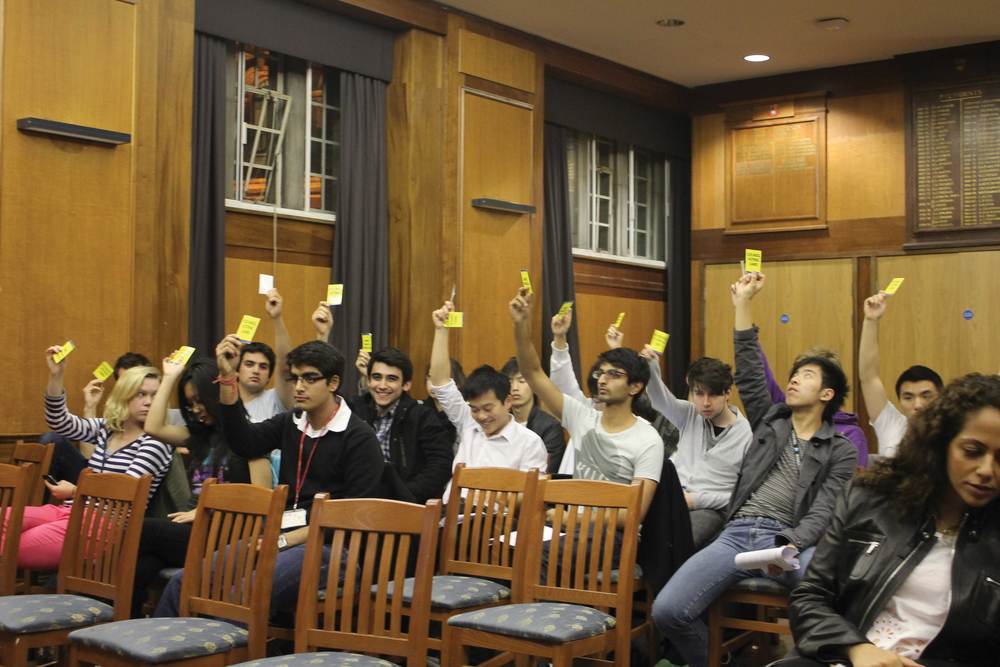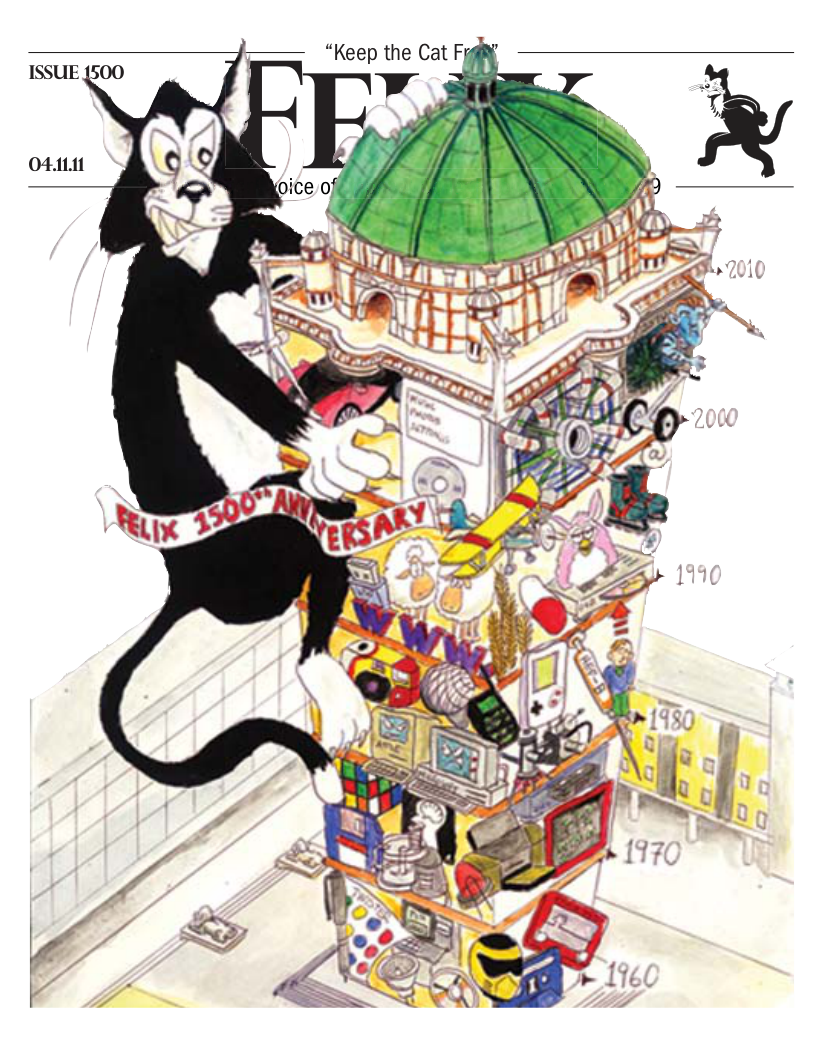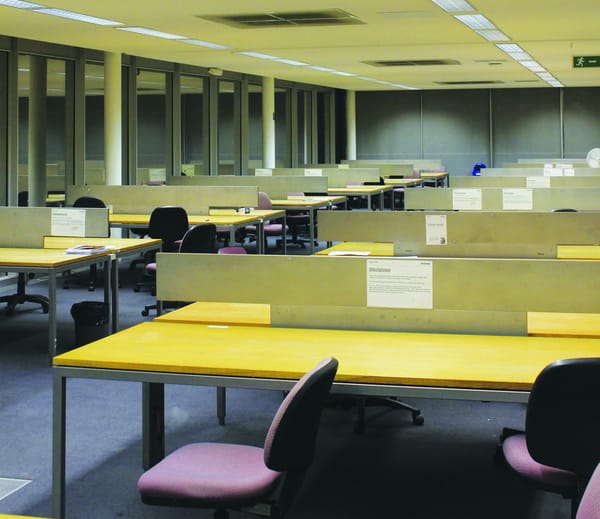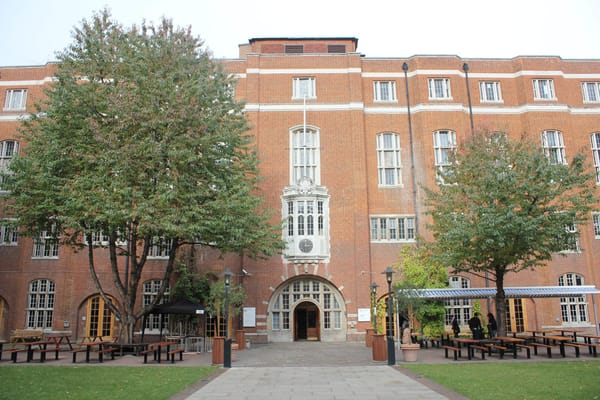Council talk Balls and bars
Independent Summer Ball investigation to be launched

Imperial College Union held its second Council meeting of the term on Monday 31 October, with all full members of Council attending for the first time. A variety of papers revolving around ongoing issues were brought forward with resolution reached for some.
Summer Ball Debrief
Serious issues about the planning of last year’s Summer Ball, which made a loss of over £100 000, were raised at this Monday’s meeting of the Union Council. In his Summer Ball 2011 Debrief, requested by last year’s council, current Deputy President (Finance and Services) (DPFS) Michael Foster outlined how he believes that the “main reason for the large loss incurred ... was a wholly unrealistic prediction of attendance.”
Despite a steady drop in turnout over previous years “the budget predicted an attendance of almost 4000 students ... more than double [what was achieved] in any of the previous three years”. In Foster’s mind, such an overestimate was “irresponsible”. The main reason for this inflated estimate were the changes to the Ball, in particular inviting students from Goldsmiths’ and King’s to attend, adding the Prince’s Gardens Stage and starting the acts earlier. It was hoped that the last of these changes would attract more Life Sciences students, who might otherwise not have been able to attend as a result of having exams in the same period.
It was pointed out from the Council floor, however, that advertising at the other institutions was not as good as it could have been. Foster’s report also admitted that, according to the post-Ball survey, “many people weren’t happy with the change in format to what was seen as a festival”. The report did, however, explain that that the formal dinner was axed because attendance “had fallen from 650 in 2007 to 150 in 2010” and that “the black tie dress code was removed, as it was thought to be unreasonable to expect students to stay in formal dress from noon to midnight”.
Foster rejected “the claim from last year’s Council saying there was not enough transparency and consultation” on these changes. He reminded those present that all format changes were approved by “the Summer Ball working group” formed of the elected Ents Committee; that the Council was kept up to date with the progress in the Ball’s preparations; and that the budget was approved by the Executive Committee. Issues were raised from the floor, however, over how much influence the Council had on the Ball, given that it was only dealt with in last year’s DPFS’ regular reports rather than a separate paper. Heather Jones, last year’s Deputy President (Clubs and Societies) and current CAG Chair, also pointed out that by the time the budget was presented to the Executive Committee there was not enough time to significantly alter it even if the Committee had wanted to.
A separate paper was also put forward by Chris Darby, asking the Council “to petition the [Union] Court to carry out an independent inquiry in to exactly how much has been lost ... and how this compares to previous years”. The paper cited incomplete information regarding the loss and the need for an “independent opinion”. Despite objections from Union President Scott Heath, who said that a further investigation by himself and the Trustee Board would suffice, the motion was carried by the Council.
Alcohol Policy passed
Deputy President (Finance & Services) Michael Foster presented a paper regarding the much debated responsible retailing of alcohol.
The paper outlined a procedural policy to be used in the bars as guidelines for retailing alcohol. The paper includes the banning of initiation ceremonies and “dirty pints”. Amendments were proposed by Henry Abbot, ACC Chair, to change a variety of points including one regarding the mobile bar, frequently used on the second floor of the union for clubs, limiting it to diluting spirits containing an alcohol content above 38% which were sold. The council members voted on the proposed amendments one by one and the paper was eventually passed.
The original policy outlined a limit of free drinks available as part of ticket costs to be six to eight. An amendment was to define it as the upper limit of eight specifically. Although this passed, it was noted that the change had already been made and that the policy for which it was proposed was an outdated document. Council imposed a fifteen minute guillotine for the discussions regarding this paper, and minor issues arose when a discrepancy in the law was brought up regarding the downing limit and the yard glass, a traditional piece of English heritage. Much of the discussion, however, was focused around the use of Imperial ID cards to identify those under 18 who shouldn’t be sold drinks.
The members conferred on a point which sought to allow students with a red box on their ID card (indicating they were seventeen and therefore below the legal drinking age threshold) onto the union premises during events but to refuse them service at the bar. ID cards are not currently a valid form of identification due to not being capable of proving age. Deputy President (Clubs & Societies) Monya Zard explained the matter to Felix, noting that they “have discussed the issue with police, who were happy to use IDs if the date of birth were displayed, unfortunately registry was not willing to do that for data protection reasons, therefore college IDs could not be accepted as valid proof of age despite the red box on the card”.
At present, students with a red box are typically allowed onto premises but refused service as expected, but for some events they can be refused entry. This proposed amendment was rejected by council, following controversy with those who believed that passing this would result in a breach of the law.
Honorary Life Membership
One of the most hotly debate issues was that of Honorary Life Memberships (HLMs). These lifetime memberships of the Union are traditionally awarded to Sabbatical Officers at the end of their terms in office. Last summer, however, Union Council narrowly voted against awarding HLM to the then Deputy President (Finance & Services), Ravi Pall.
This decision was later quashed, on the grounds that the Sabbatical Officers had been – unconstitutionally – barred from taking part in the vote (although this is a longstanding convention). This Monday the vote was taken again; none of the now former Sabbatical Officers were present during the discussion. The vote itself was carried out by secret ballot, meaning that a two-thirds majority was required in each case.
The decision was the same as that of last year, with Council deciding against awarding HLM to the former DPFS (with 12 votes for versus 14 against). Much of the debate centred on the handling of the Summer Ball, as well as more general issues concerning Pall’s handling of his role. All other Sabbatical Officers from last year received HLM.






